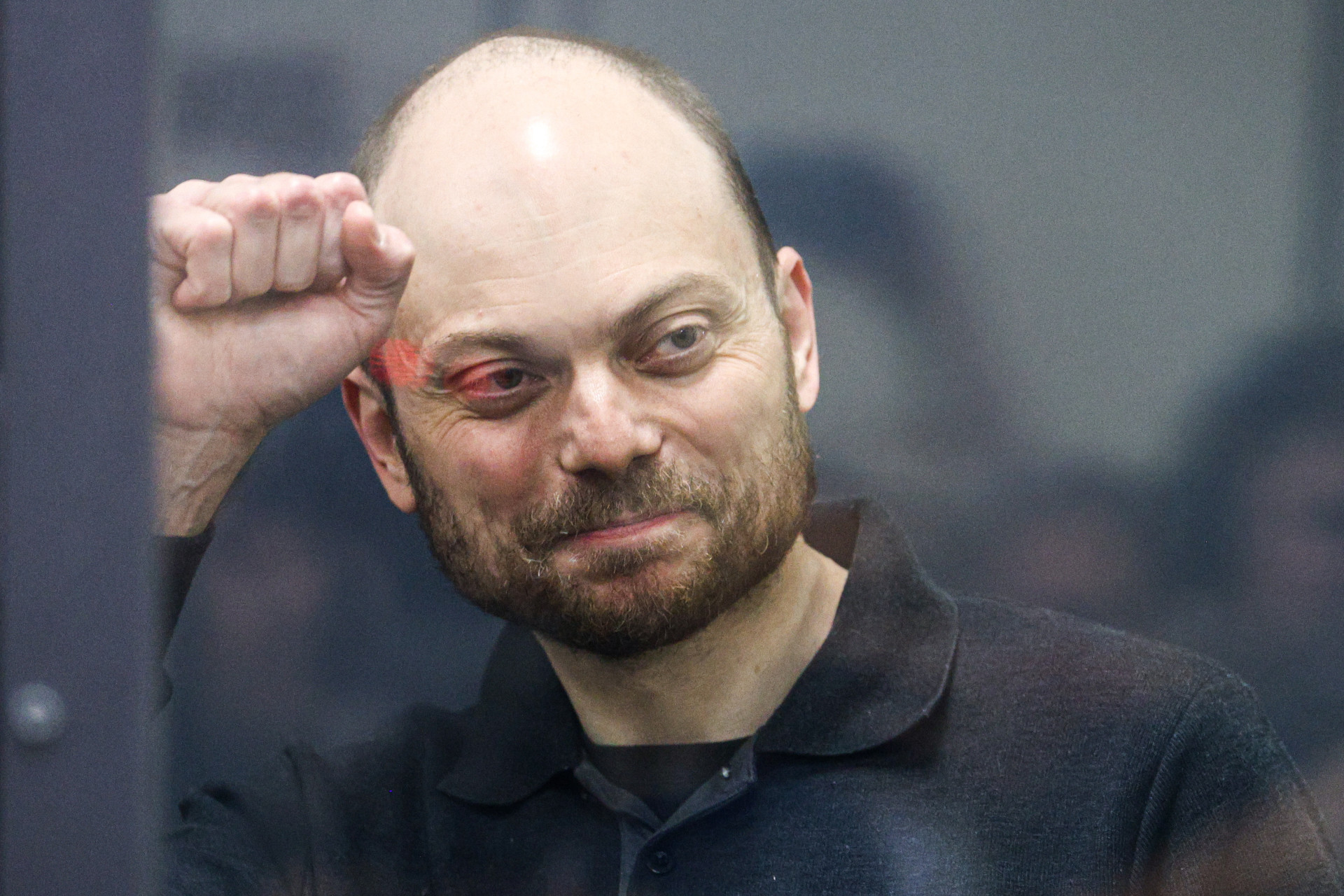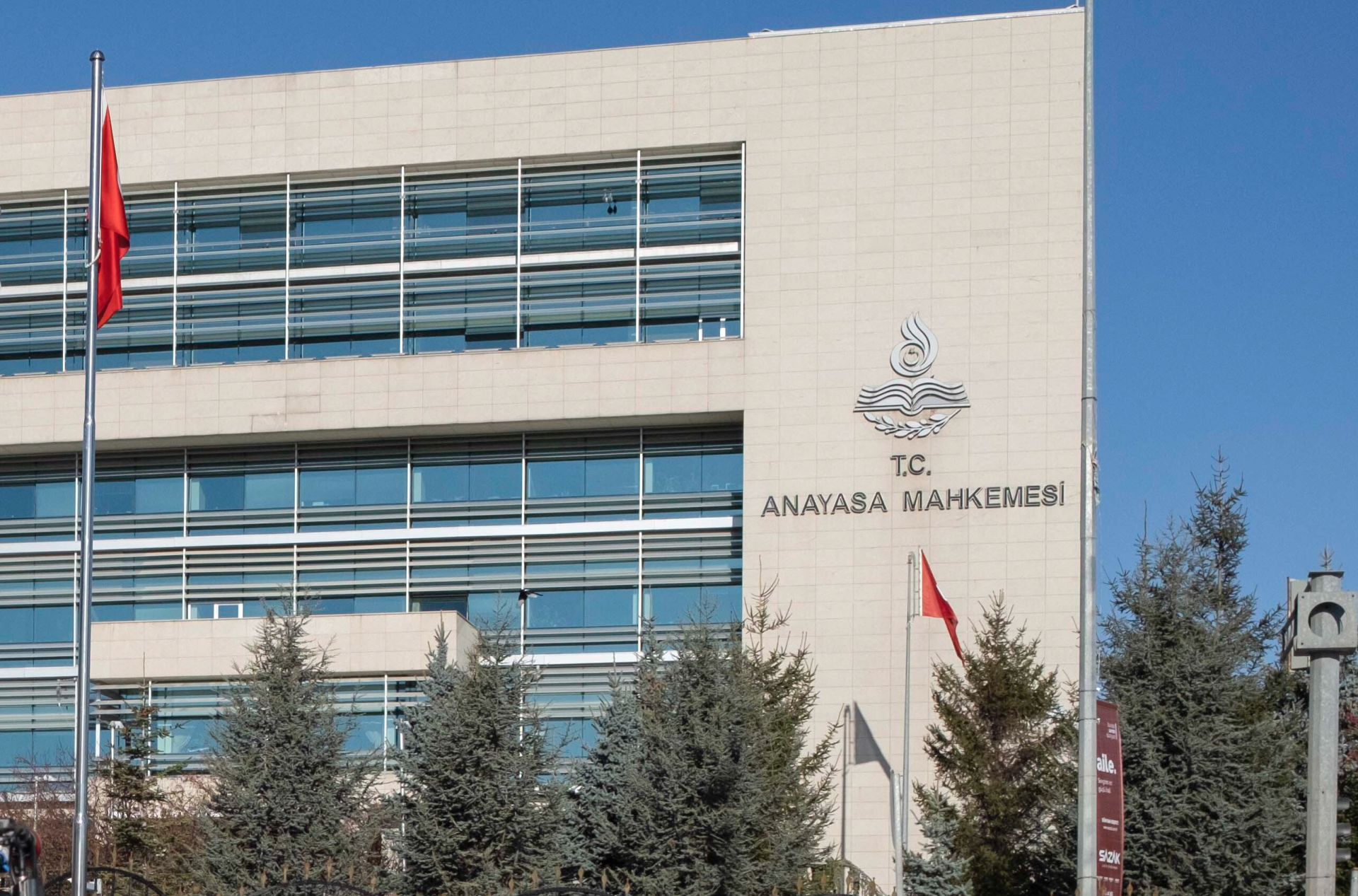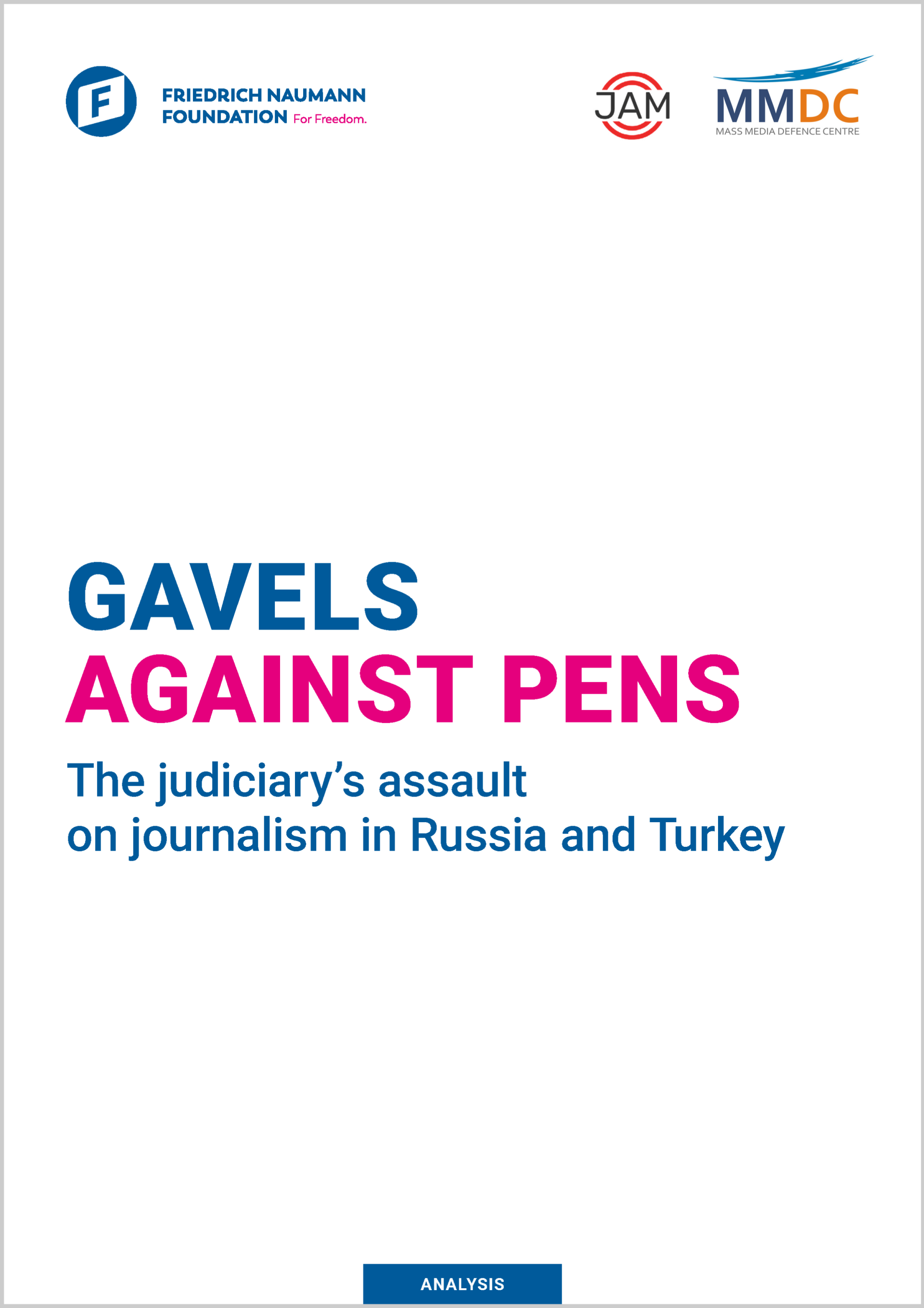Gavels
vs Pens
The judicial story of Russian and Turkish repression of independent media
A collaborative publication by JAM e.V., the Mass Media Defense Center (MMDC) – a Russian independent media defense organization – and the FNF’s International Journalists and Media Dialogue program, analyzes the autocratic tactics of media repression. The study sheds light on cases falling under the so-called SLAPPs (Strategic Lawsuits against Public Participation) category in Russia and Turkey. It meticulously outlines the playbook employed by autocrats to suppress journalists’ voices over the past two decades. While these countries are often grouped as symbols of autocracy, the introduction of the publication by Nate Schenkkan of Freedom House emphasizes crucial differences between them.

Russian Opposition leader and Pro-democracy activist, Vladimir Kara Murza

The Constitutional Court of Turkey
“Nobody’s immune to anything. You have to understand the different kinds of pressures people feel like they are under. What do totalitarian governments of any kind try to do immediately? They try to control communications networks. In a coup, they grab the radio and television. They try to shut down communications, and education, so that nothing is taught that isn’t copacetic with their own views. Those are two things totalitarian governments will try to do. A third is to control the judiciary, so the views of the judges and lawyers are the same as the regime. This is an old playbook.”
– Margaret Atwood –
in an Interview with WIRED magazine, May 2023 Issue
In Russia, Roman Zholud and Anna Romashchenko describe in detail a systematic “cleansing” of the free information space orchestrated by Putin’s administration. This censorship escalated during Russia’s 2022 invasion of Ukraine, resulting in the blocking or banning of many independent media outlets. Meanwhile, in Turkey, as explained by Barış Altıntaş and Sibel Yükler, the Erdoğan government’s aggressive measures have made it the sixth-largest jailer of journalists globally. Accusations of state crimes are weaponized to silence and intimidate journalists, branding them as ‘traitors’ or ‘terrorists.’ Ivan Safronov’s case in Russia, with charges of high treason being laid for allegedly passing confidential information to Czech special forces, and Turkey’s interference in the editorial policy of news outlets, illustrated in the Cumhuriyet saga by Gökçer Tahiincioğlu, raise grave concerns for the freedom of the press.
The publication also delves into the increased judicial harassment faced by journalists reporting on state or corporate corruption. In Russia, journalists encounter fabricated evidence, whereas in Turkey, they face the threat of financial ruin through lawsuits related to corruption investigations. A striking example is Pelin Ünker’s case in Turkey, associated with the analysis of the ‘Paradise Papers,’ as detailed by Asuman Aranca. The judicial assault on journalism in both Russia and Turkey has far-reaching implications for freedom of expression and democracy. In Russia, these effects are evident daily during the war, while in Turkey, the developments continues. Despite the risks, journalists in these nations persist in their pursuit of truth, underscoring the urgent need for international support to safeguard the freedom of the press.
Freedom of expression and the media

